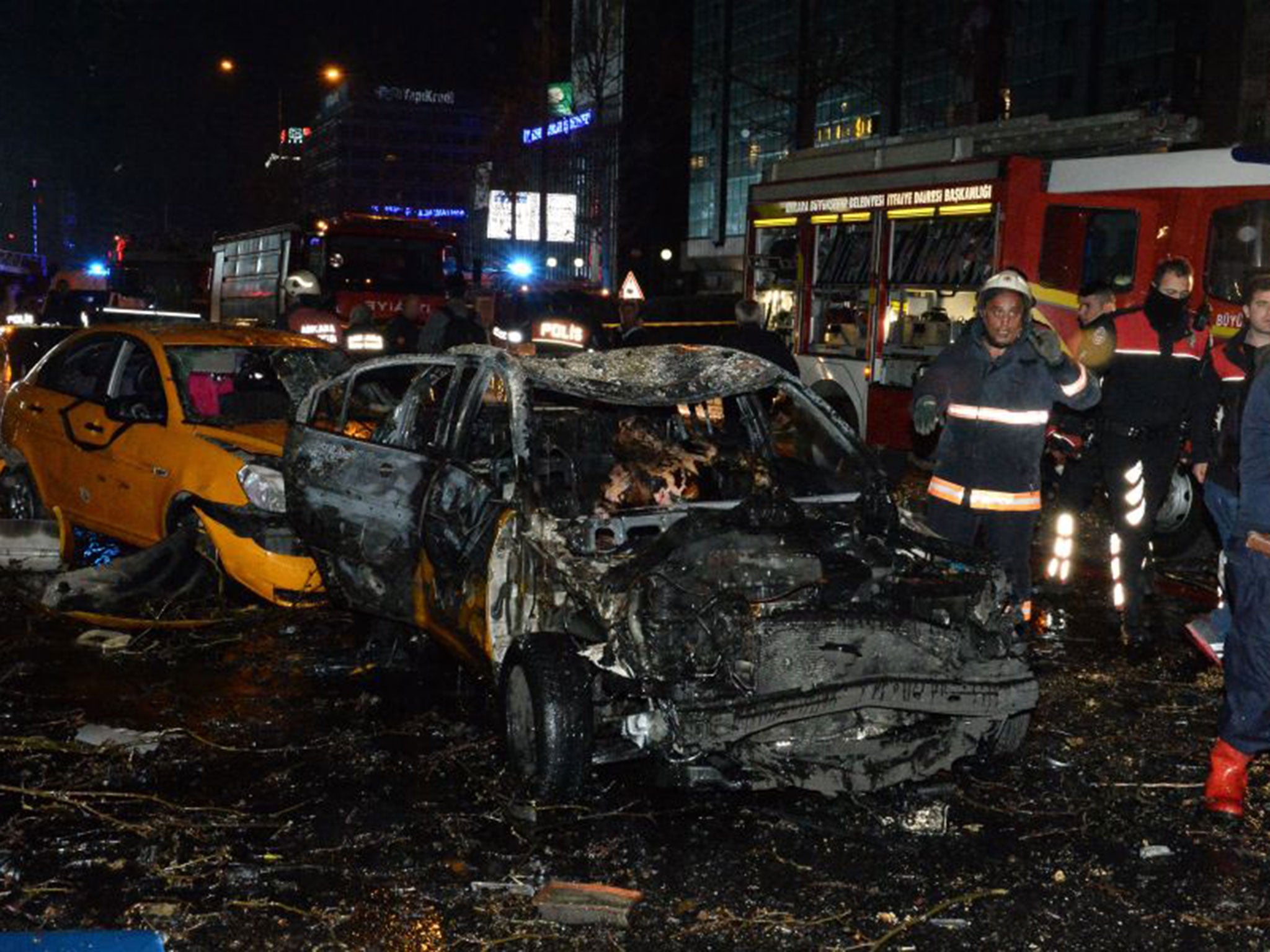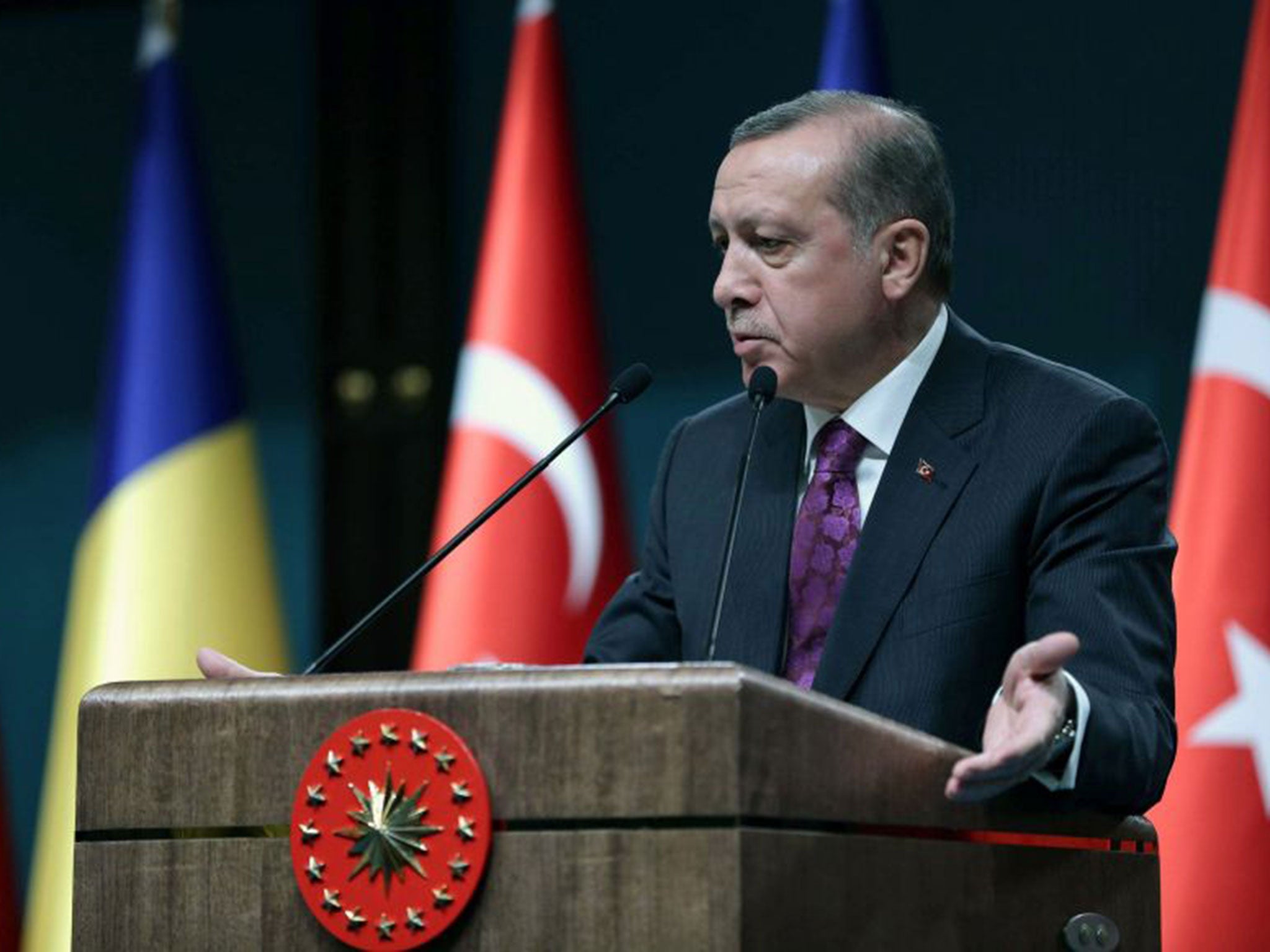Brussels attacks: Belgium missed or ignored Turkey's warning – other nations cannot afford to do the same
Co-operation between Western powers and Turkey is seen as vital in preventing other similar attacks by those linked to Isis

When President Recep Tayyip Erdogan announced that Turkey had warned Belgium about one of the Brussels bombers, it was a major “told you so” moment. A leader long accused of failing to take Isis seriously enough clearly relished the chance to turn the tables on Europe.
Turks could be forgiven for raising their eyebrows at the triumphalist tone, however. The country is reeling from six suicide bombings in nine months, most recently on Saturday when a suspected Isis member blew himself up in the heart of Istanbul.
We don’t yet know why Belgium failed to heed the warning about Brahim el-Bakraoui, who was deported from Turkey not once but twice last year, officials said. We do know that co-operation between Western powers and Turkey – which shares 500 miles of border with Syria –is seen as vital in preventing other similar attacks by those linked to Isis.
We also know that some of Turkey’s Western allies believe that President Erdogan’s own rhetoric about fighting terrorism is too mixed up with domestic political struggles to be taken at face value. On a practical level, both European and Turkish officials now say that intelligence sharing and co-operation has improved significantly.
A year and a half ago, the list of foreign citizens banned from entering the country stood at 13,000 names. Today, augmented by intelligence from partner states, it stretches to 38,000.

When suspected foreign jihadists are caught they are deported. Turkish officials say that 3,200 people have been kicked out in this manner, including dozens of Britons. Despite these steps, in the eyes of his allies in the US and Europe, President Erdogan does not always give the impression that fighting Isis is his No 1 concern.
While the jihadist group dominates the agenda in Britain, it is just one slice of what the Turkish government describes as a “wave of terrorism” that has descended on the country – one that his opponents say is at least partly of his own making. Shaken by a major corruption scandal that he believed was orchestrated by Fethullah Gulen, a political ally turned foe, Mr Erdogan declared him and his supporters to be a terror organisation.
Hundreds of policemen accused of supporting the exiled former imam have been sacked, robbing the security services of years of professional expertise. Those who remain, meanwhile, continue to devote time and energy to pursuing businesses and news outlets accused of having links to the Gulenist movement.
In the south-east of Turkey, the collapse of the Kurdish peace process has again pitted Turkish security services against the Kurdistan Workers’ Party (PKK). It is a bloody battle that has spilled over into the country’s biggest cities. Two weeks ago, a PKK splinter group claimed responsibility for an attack on Ankara’s shopping district that killed 38 people.
Mr Erdogan insists, almost daily, that “there is no difference” between Isis, the PKK and an alphabet soup of smaller groups. But the picture is muddied by the fact that the fight against them is assuming an increasingly political hue. Mr Erdogan is pressing to expand the legal definition of terrorism to include journalists, MPs and academics he accuses of seeking to undermine the state. These days, when he rails against terrorism, it can be hard to know whether he is talking about someone wearing a suicide vest or someone using Twitter.
This is alarming to Turkey’s partners but - as with the efforts to halt the flow of refugees and migrants - they feel that they have little choice but to work with Ankara. It seems that Belgium either missed or ignored the Turkish warning. Other countries know they cannot afford to make the same mistake.
Join our commenting forum
Join thought-provoking conversations, follow other Independent readers and see their replies
Comments